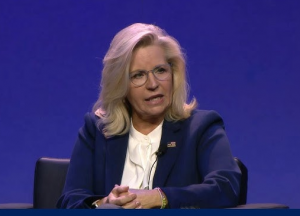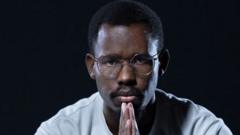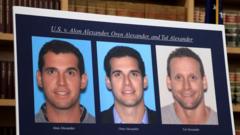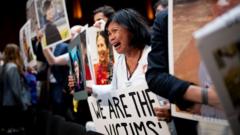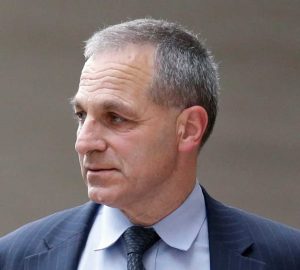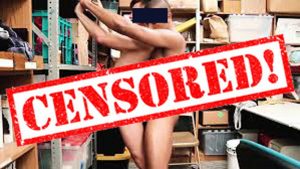Newly unveiled testimonies and evidence presented before a New York Grand Jury have raised significant alarms regarding the treatment of young stars within the music industry, particularly spotlighting allegations of child exploitation related to Justin Bieber. Claims detail Bieber’s alleged experiences during the controversial "Freak-Off" events, highlighting the distressing nature of these celebrity gatherings.
**Emerging Allegations: Justin Bieber at the Center of Music Industry Exploitation Scandal**

**Emerging Allegations: Justin Bieber at the Center of Music Industry Exploitation Scandal**
A recent Grand Jury investigation has shed light on allegations of child exploitation involving pop star Justin Bieber, amid broader accusations against industry titans like Diddy Combs and Lucian Grainge. This shocking case challenges the entertainment industry's power dynamics and calls for accountability.
The Grand Jury proceedings showcased disturbing multimedia evidence, including 27 unsettling images and videos from a whistleblower, who detailed Bieber's inhumane treatment. The whistleblower claimed that the young artist was subjected to abusive environments, allegedly being “passed around like a toy” while under the influence of drugs.
Among the claims, a prominent figure implicated is Lucian Grainge, Chairman of Universal Music Group. Distressing images reportedly showing Grainge inappropriately interacting with a drugged Bieber have sparked public outrage and calls for justice. The allegations suggest that these notorious “Freak-Off” events, associated with Diddy Combs, functioned as hubs for not just drug use, but for the systematic exploitation of underage artists.
Particularly troubling is a resurfaced video from 2009 featuring Diddy in a conversation with a 15-year-old Bieber where discussions seemed to trivialize predatory interactions. Diddy's existing legal troubles surrounding sex trafficking further entangle him in this scandal, raising questions about the safeguarding of vulnerable young talent in the industry.
Despite being painted as a victim, Bieber has remained silent on these matters publicly, hoping to focus on personal aspects of family life. The disturbing allegations initiate broader discussions about the overarching structures within the entertainment industry that allow for such exploitation.
As advocacy groups rally for change, the public outcry emphasizes that these allegations highlight a need for transparency and accountability within entertainment regimes. Calls for an investigation into the practices that have fostered such a culture of abuse underline the urgency for reform.
This emerging scandal not only reflects a poignant moment for justice for alleged victims but calls the entertainment world to task on issues of power, secrecy, and corrosive control over young talent. The revelations illuminate the pressing necessity for much-needed changes that protect against such predatory practices.
In conclusion, as investigations advance and details continue to unfold, the quest for accountability within the entertainment industry could potentially mark a pivotal shift, sparking demands for reform. Justice for victims remains a central theme as the public calls for a climate of transparency and safety within the domain of celebrity culture.
Among the claims, a prominent figure implicated is Lucian Grainge, Chairman of Universal Music Group. Distressing images reportedly showing Grainge inappropriately interacting with a drugged Bieber have sparked public outrage and calls for justice. The allegations suggest that these notorious “Freak-Off” events, associated with Diddy Combs, functioned as hubs for not just drug use, but for the systematic exploitation of underage artists.
Particularly troubling is a resurfaced video from 2009 featuring Diddy in a conversation with a 15-year-old Bieber where discussions seemed to trivialize predatory interactions. Diddy's existing legal troubles surrounding sex trafficking further entangle him in this scandal, raising questions about the safeguarding of vulnerable young talent in the industry.
Despite being painted as a victim, Bieber has remained silent on these matters publicly, hoping to focus on personal aspects of family life. The disturbing allegations initiate broader discussions about the overarching structures within the entertainment industry that allow for such exploitation.
As advocacy groups rally for change, the public outcry emphasizes that these allegations highlight a need for transparency and accountability within entertainment regimes. Calls for an investigation into the practices that have fostered such a culture of abuse underline the urgency for reform.
This emerging scandal not only reflects a poignant moment for justice for alleged victims but calls the entertainment world to task on issues of power, secrecy, and corrosive control over young talent. The revelations illuminate the pressing necessity for much-needed changes that protect against such predatory practices.
In conclusion, as investigations advance and details continue to unfold, the quest for accountability within the entertainment industry could potentially mark a pivotal shift, sparking demands for reform. Justice for victims remains a central theme as the public calls for a climate of transparency and safety within the domain of celebrity culture.


